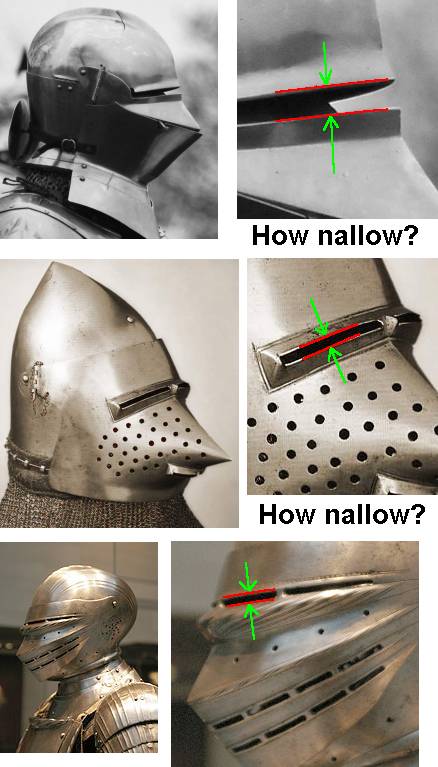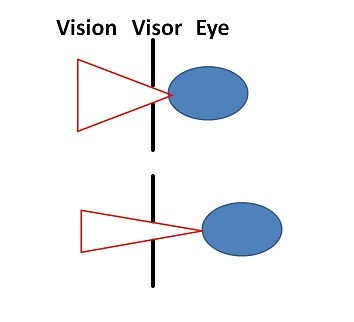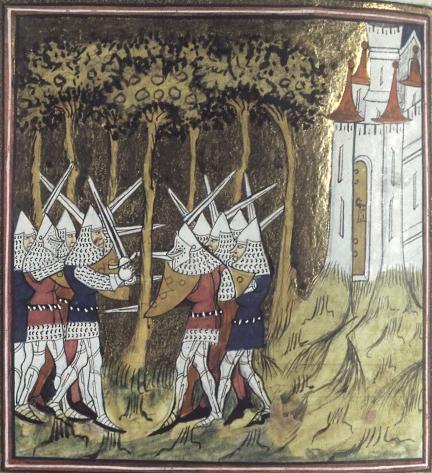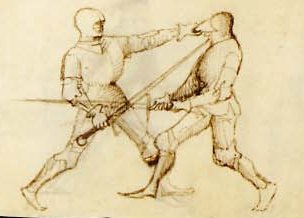We know that the eye-slit of the visor is the weak point of the armour...
A nallower slit has good protection. :)
But narrow slit has bad view... :(
I have very simple question...
How nallow the eye-slit of the visor? :?:
I have never seen the real visored-helmet... :(
Is it 10mm(0.39inch) or less?
How many mm(inch) is the MOST NALLOW(thinnest) width of the slit? :?:
thanks




